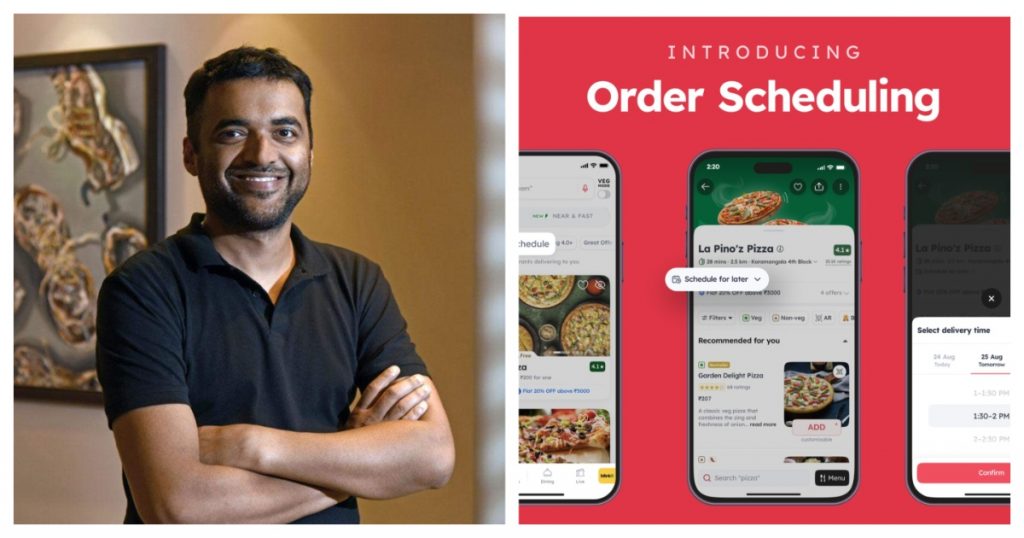Zomato might now be one of India’s 50 most valuable companies, but it’s still shipping features like a fledgling new startup.
Zomato will now let users schedule their food deliveries from restaurants at their desired times. “You can now schedule orders on Zomato,” Zomato CEO Deepinder Goyal posted on X. “Plan your meals better by placing an order up to 2 days in advance, and we’ll deliver right on time,” he added.

Goyal said that currently order scheduling was available at around 13,000 outlets across Delhi NCR, Bengaluru, Mumbai, Ahmedabad, Chandigarh, Lucknow and Jaipur. The orders need to be of more than Rs. 1,000 in value for them to be scheduled. “These restaurants historically, have high quantities of dishes in stock and have shown kitchen-preparation-time consistency. More restaurants and cities are being added. We will soon extend this for all orders,” he added.
Order scheduling is a pretty interesting feature, and it’s somewhat surprising that it hadn’t been introduced already by food delivery companies. There are times when you know you need a meal at some point in the future, but wouldn’t necessarily find the time to order at that point — in the middle of a busy workday, for instance, it can be hard for people to whip out their phones and find things to order, but if they can place their orders while at home or in their cabs to work, the food could just arrive at the designated time. People can also place orders in advance for their parties and get togethers, and not need to spend time ordering while their guests are already at home.
And there’s precedent for such scheduling — cabs, for instance, can be scheduled for years now, as can e-commerce deliveries. Food deliveries, however, are slightly more complex — restaurants need to know that they’ll have those specific dishes available at some point in the future. Zomato, though, now has reams of data on dish availability at its partner restaurants, and thus feels confident about accepting orders that will be delivered as long as two days later.
But order scheduling is just the latest in a string of new features that Zomato has announced in recent quarters. Zomato had earlier announced it would have a veg-only delivery fleet to meet the needs of vegetarian users, and had even installed 650 rain gauges in cities to be able to determine if weather conditions would allow deliveries to take place. Zomato has also recently launched group orders, which allows several people to contribute to a single order through their phones, and also launched a feature in which users can receive money from their delivery partners in a digital wallet if they don’t have exact change.
And Zomato might need to develop these features to maintain its dominance in the food ordering space. The Indian government’s ONDC is now available on mainstream apps like Paytm and Ola, and users can order food from these apps often at cheaper prices than Zomato. Zomato, however, has much superior ordering and support experience, and with these new features, can look to retain users on its platform. But what’s most impressive is how quickly Zomato is implementing new initiatives — 16-year-old companies can often get staid and bureaucratic, but Zomato seems to still be zipping along with the velocity of a recently-founded startup looking to raise its Series A.
